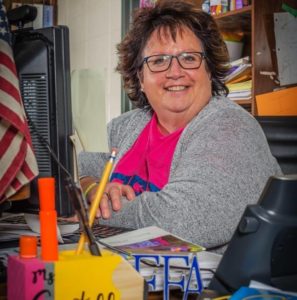Agriculture-related careers represent 11% of Wisconsin’s workforce – that’s nearly 1 in 9 Wisconsin jobs involved in agriculture. Sustainability matters from the farmer’s gate to the consumer’s plate. Each step of the supply chain has their own priorities when it comes to preserving resources and ensuring success for the next generation.
Agriculture Educators have an important role in equipping students for success in all realms of agriculture. From priming next generation farmers for their role on the farm to coaching communicators to effectively share agriculture’s story, the responsibilities are vast. Setting up the next generation of agriculturists for success is just one way agriculture educators prioritize sustainability.
Hear from Waupun Area Junior/Senior Agriculture Education Teacher and FFA Advisor, Tari Costello, about her role and how sustainability impacts her classroom.
Hometown/County: I grew up in Alma, WI/Buffalo County; currently reside in Waupun/Dodge County
Job Title: Waupun Area Junior/Senior High School Agriculture Education Teacher and FFA Advisor
What’s an average day in the life? As an agriculture teacher and FFA advisor, I’m not sure that there is an “average” day. I have the opportunity to work with the best students at Waupun Area Junior/Senior High School each day! I teach on a block schedule, teaching four classes a day. These classes range from Horticulture to Veterinary Science to Employability Skills to Farm to Table Production and more. These classes allow me to provide students with a variety of experiences that include amazing partnerships with a variety of local industry experts including agricultural businesses, producers, veterinarians, and more. My workdays are not limited to school hours. Most weeks include numerous hours before school, after school, and weekends. FFA projects, supervised agriculture experience programs, picking up supplies for labs and leadership opportunities are responsible for most of these hours. I also have a summer contract that has me visiting students to review their SAE projects, FFA Officer Training, county fairs, State FFA Convention, and other teambuilding and leadership programs.
How do you talk about sustainability in the classroom? It is difficult to teach agriculture education without teaching sustainability. As agriculturalists, we are the caretakers of the planet. Everything that we do to grow and raise the food and fiber for the planet must be done with sustainability in mind.
What terms/words do you associate with sustainability? Longevity, efficiency, profitability, carbon footprint, natural resources, environment
Thank you, Tari, for your commitment to Wisconsin agriculture!



Leave a Reply